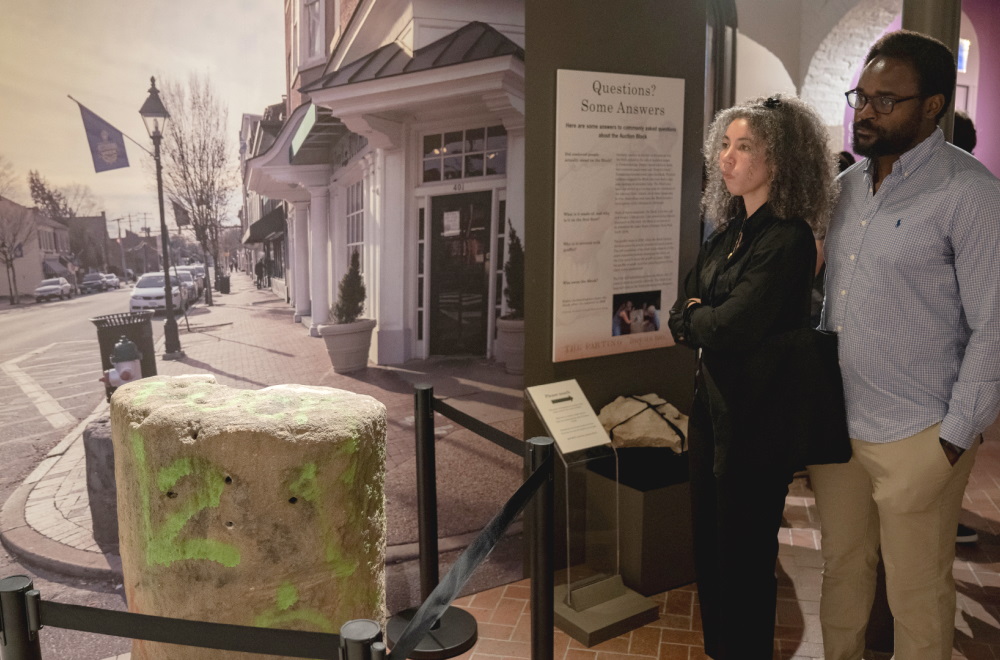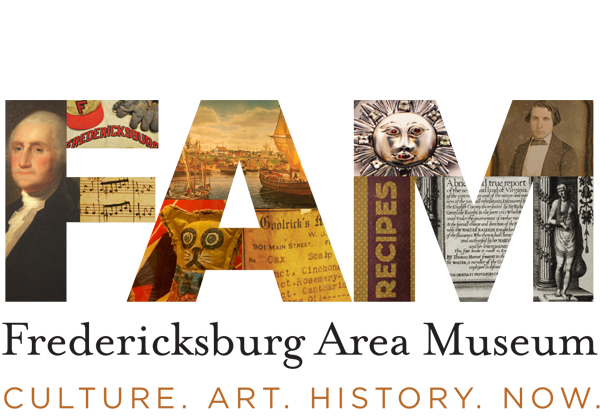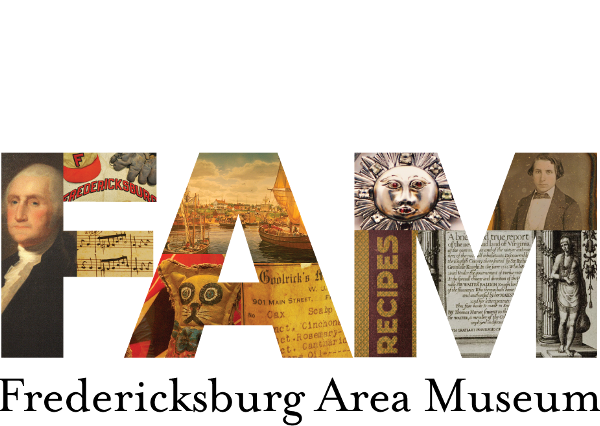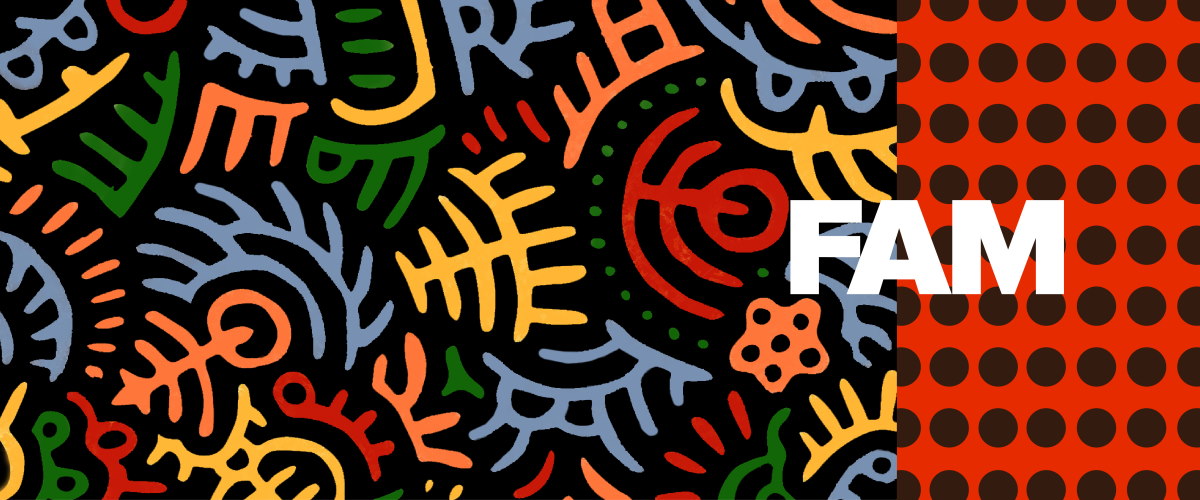
The Auction Block, associated with the sale of enslaved people, stood on the corner of William and Charles Streets in downtown Fredericksburg from around 1843 until June 2020. There were at least twenty documented sales of enslaved people that took place on that corner from 1847 until 1862, involving more than three hundred enslaved individuals overall. While there is little information available about these individuals, researchers have uncovered the stories of two men known to have been sold at this corner: George Triplett, believed to be the last enslaved person sold from this corner in 1862, and Albert Crutchfield, sold from the Block around 1859.
After the close of the Civil War, the Auction Block continued to stand on its original corner for the next 150 years, an enduring object of debate amongst longtime Fredericksburg residents, tourists, and newcomers. Following the “Unite the Right” rally in Charlottesville, Virginia in August 2017, City Councilor Charlie L. Frye, Jr. moved for a vote to relocate the Block from its original location. City Council initially decided against removal, but initiated a citywide conversation about the Block and the representation of African American history in the city.
They convened focus groups and public forums to gather community feedback, and found that for many, the Auction Block served as a symbol of the ongoing pain of racial injustice. On June 11, 2019, the City Council voted to remove the Block and relocate it to the Fredericksburg Area Museum. For more on the City of Fredericksburg’s decision to move the Block to its current location, visit the City of Fredericksburg’s “Slave Auction Block” webpage.
The Auction Block was placed at the FAM in fall 2020 and opened to the public with an accompanying temporary exhibition soon after. In November 2022, following the arrival of the Curator of African American History and Special Projects, the FAM opened “A Monumental Weight: The Auction Block in Fredericksburg, Virginia,” a physical and digital exhibition grounded in historical documentation, academic scholarship, and extensive community involvement.
For more information on the physical exhibition, visit “A Monumental Weight: The Auction Block in Fredericksburg, Virginia.”
You can find the expanded, virtual exhibition of A Monumental Weight: The Auction Block in Fredericksburg, Virginia offering deeper contextualization on the Block’s history, Virginia’s relationship to the market in enslaved people, and enslaved people’s experiences of being bought and sold here:
To contribute feedback on the exhibition or to become involved in further efforts to interpret African American history and culture at the museum, please email Dr. Gaila Sims at gsims@famva.org.
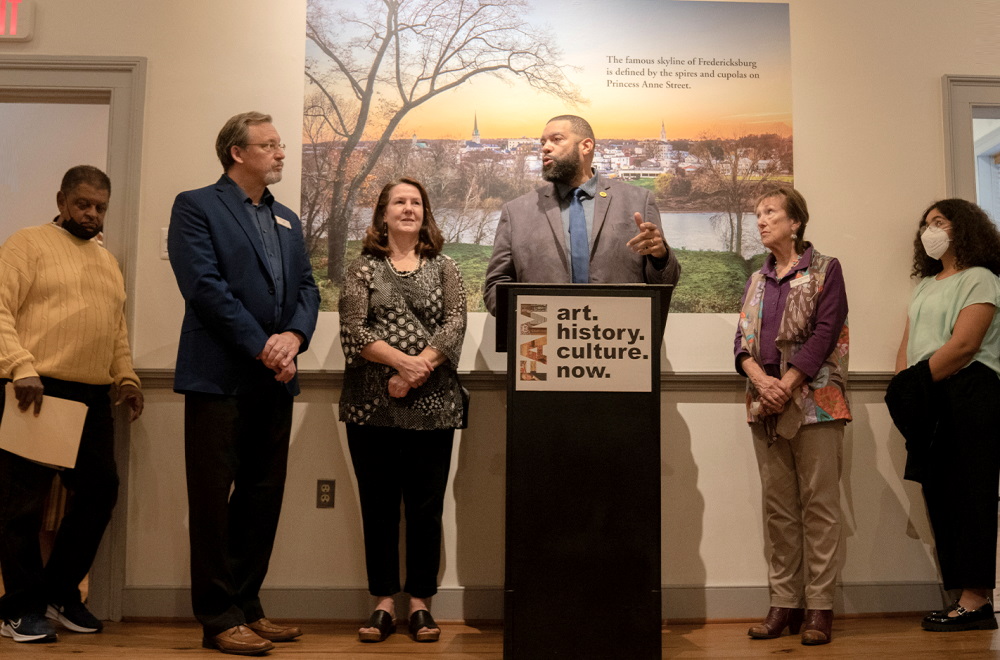
Vice-Mayor Charlie L. Frye, Jr. (center, at podium) speaks at the exhibit opening on November 5, 2022, accompanied (from left to right) by Mr. Sonny Holmes, City Councilor Jon Gerlach, City Councilor Kerry Devine, and Mayor Mary Katherine Greenlaw. Image courtesy Barclay Sims Company.
